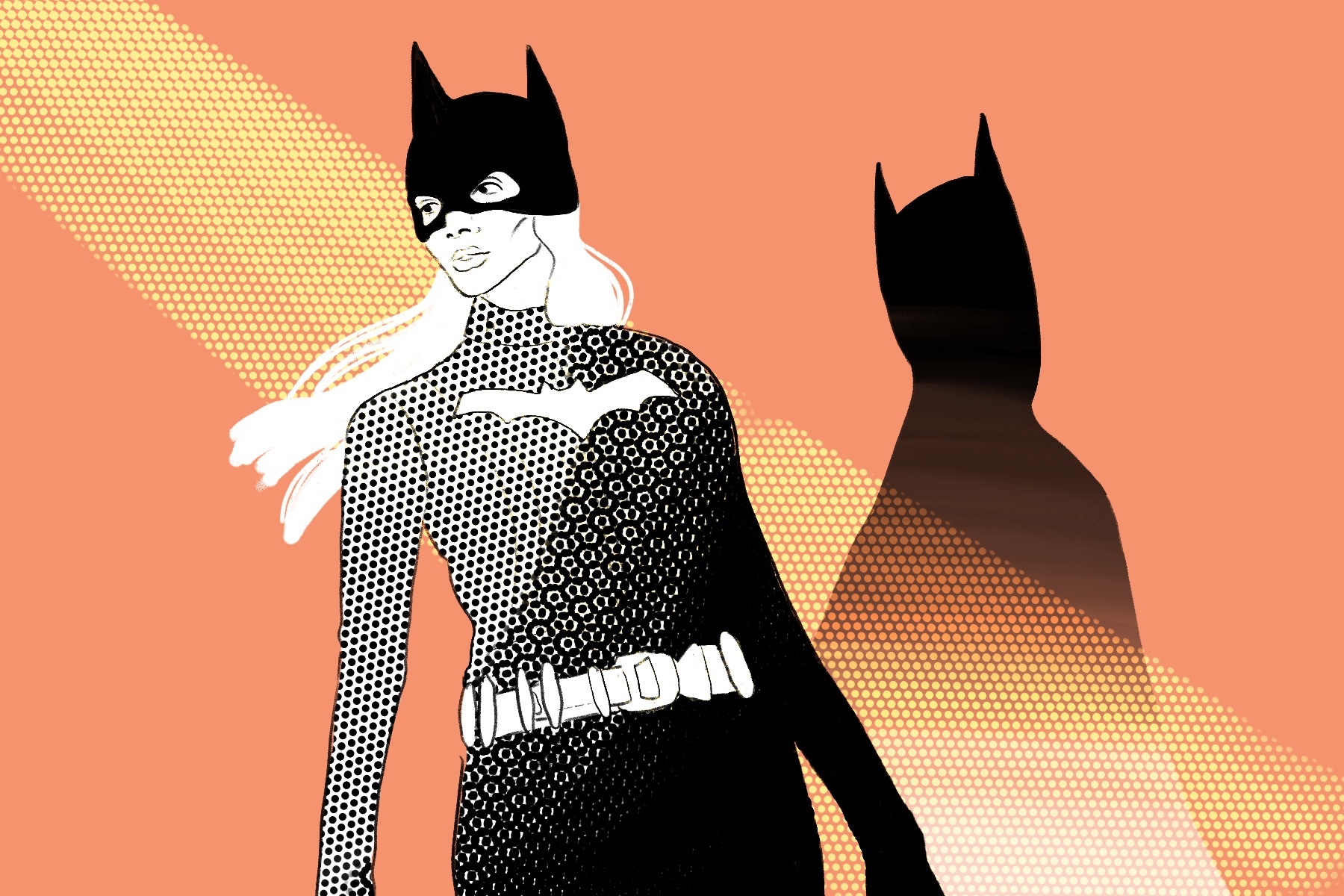Holy tax write-offs, Batman!
After negative test screenings, WB Discovery CEO David Zaslav decided to shelve “Batgirl” permanently. Not all planned movies survive to the big screen, but movies in post-production usually do. For films to not hit theaters after production is exceptionally rare — usually only occurring when movies or stars end up embroiled in controversy. Too many people pour their passion into making these unique, grand stories come to life to shelve films without good reason. Negative test screenings often just lead to some reshoots, usually for the better, despite increasing the budget by several million dollars. Studios invest in the movie and its devoted cast and crew, regardless of the outcome. Not this time, though: The company is writing “Batgirl” off for tax benefits.
Directed by “Ms. Marvel” directors Adil El Arbi and Bilall Fallah, “Batgirl” would have brought Barbara “Babs” Gordon’s origin story to the big screen. Daughter of Commissioner Gordon, Barbara Gordon has been around since 1967, when she made her comics debut. That year, Yvonne Craig played the character in Season 3 of the campy ‘60s “Batman” television series. Later in the comics, Joker paralyzed her in “Batman: The Killing Joke,” and for several decades, she was Oracle, helping Batman fight crime from her wheelchair. (Some criticize the decision to erase the disability’s representation from the movie, but that’s what sequels are for.)
Before its cancelation, “Batgirl” seemed set to add to the small number of DC leading women. Right now, only Wonder Woman (Gal Gadot), Harley Quinn (Margot Robbie) and the Birds of Prey wear the mantle as major female players in the DCEU. Beyond the DCEU, the list of superheroines with their own movies is not much longer, making “Batgirl” that much sweeter. Beyond joining this distinguished company, it would have featured Dominican actress Leslie Grace as Batgirl herself. A woman of color leading her own movie? Muslim directors? Even a trans woman (Ivory Aquino as Alysia Yeoh) as Barbara’s canonically trans best friend? This was progress. Not anymore, though.
Originally intended to be a smaller-scale HBO Max project, “Batgirl” eventually spread its wings to aim for a theatrical release. In the end, however, it was too small-scale to be a big superhero event like another “Batman” movie or Marvel tentpole. Despite its giant budget, it was not large enough to warrant the big screen but too large to be relegated to streaming. One test screening with temporary visual effects yielded a score in the 60s, comparable to early cuts of “Black Adam” and “Shazam! Fury of the Gods,” but apparently not worth the effort of reshoots like the male-led movies. Instead, “Batgirl” was written off as, in a word, “irredeemable.”
The idea that “Batgirl” could be irredeemable seems laughable at first. Many terrible superhero movies have made it to the big screen and more than recouped their budgets. DC itself struggled with “Batman v Superman: Dawn of Justice” (2016) and Joss Whedon’s theatrical cut of “Justice League.” A small legion of super-fans resurrected the Snyder Cut of “Justice League” for HBO Max, with a budget of $70 million — on par with “Batgirl.” Even Sony’s maligned “Morbius” made money. Sony went on to re-release the movie, thinking they could profit from just how bad it was. “Batgirl” can’t even get the one.
So, what do all of these movies have in common? They’re headlined by men, directed by men and supported by men. Usually white men, at that. Like several axed DC television shows (including “Batwoman”), “Batgirl” quite visibly is not. Under most circumstances, that would be celebrated. Not in the world of WB Discovery, though.
Even among the people involved in the making of “Batgirl,” the decision to shelve the film wasn’t widely discussed. Apparently not informed, the DC Films president Walter Hamada threatened to quit and still might do so after the October release of “Black Adam.” Worse yet, directors El Arbi and Fallah found out at Arbi’s wedding. Such a move shows blatant disrespect for the movie’s directors as people, not just as talent. It’s like commissioning a painting to go in a museum and then telling the painter it’s not good enough after publicly throwing it in the trash.
While “Batgirl” got the ax, Zaslav has thrown his support behind larger blockbuster movies like “Black Adam,” “Shazam! Fury of the Gods” and “The Flash.” Yet the latter has faced calls to end up on the cutting room floor instead of “Batgirl” due to star Ezra Miller’s scandals. While the cast of “Batgirl” has not had any controversies thus far, Zaslav shelved “Batgirl” but continued to support “The Flash” and its massive $200 million budget.
It makes financial sense, but nothing changes the fact that Miller was accused of drunken assault in Hawaii, inappropriate interactions with multiple minors and leading a cult in Iceland. (They must be traveling the world like a real-life Flash to get all this done). After Zaslav openly supported “The Flash,” Miller was charged with felony burglary for stealing alcohol from a house in Vermont. Only then did WB Discovery waver in its support for “The Flash.” The film will still proceed, but with limited or no publicity for Miller in the film’s promotion. The only scenario in which “The Flash” will get shelved next to (or instead of?) “Batgirl” is if Ezra Miller causes more controversy instead of seeking help.
Excuses for the cancelation of “Batgirl” invoke Zaslav’s shift away from former WB CEO Jason Kilar’s streaming-centric strategy. Seeing streaming as the next big thing, Kilar promoted controversial, perhaps unprofitable same-day or streaming-only movie releases on HBO Max. Directors like Christopher Nolan struck back, fighting the streaming-only release of pictures like “Tenet,” designed for IMAX. In that way, it makes sense not to send more movies to streaming platforms, but it is still better than canceling something like “Batgirl” altogether.
Movies are an art form for the directors, writers, and actors involved, but more and more, that view fades for the people holding the purse strings. There’s little humanity in the movies-as-content worldview. It’s all about the money, Zaslav claims. In this case, it’s also about redeeming DC’s dismal image as it attempts to compete with Marvel. As movies hit peak product, Zaslav wants to cash in with a new 10-year DC master plan. The goal is to create the kind of repeat customers familiar to the MCU, but disrespecting fans this early in the game doesn’t bode well.
Diverse fans may be a demographic HBO Max serves well, but they’re probably not a top priority for WB Discovery. In a recent presentation, Zaslav outlined the core audience of HBO Max as male and the core audience of Discovery+ as female. Not only is this sexist thinking, but it’s also wildly out of touch. No wonder the executives would cancel “Batgirl” — they think men don’t care enough to watch it on the male platform and won’t see it in theaters, either. Maybe some men will not, but women will.
Honestly, backtracking now would be the best marketing move for “Batgirl,” with the publicity ensuring the movie’s box office success. While that might be the movie’s Hollywood ending, there’s no outcome where WB Discovery, especially Zaslav, comes out looking good from this. They shelved several movies important to fans — not just “Batgirl” but also “Scoob!: Holiday Haunt” and other HBO Max originals. They scrapped or slowed plans for others, possibly including “Supergirl.” They kept others, despite controversy. They revealed the unsavory economics lurking behind the curtain. They probably scared off talent by being untrustworthy. Not even the Flash entering the Speed Force can save them.

















